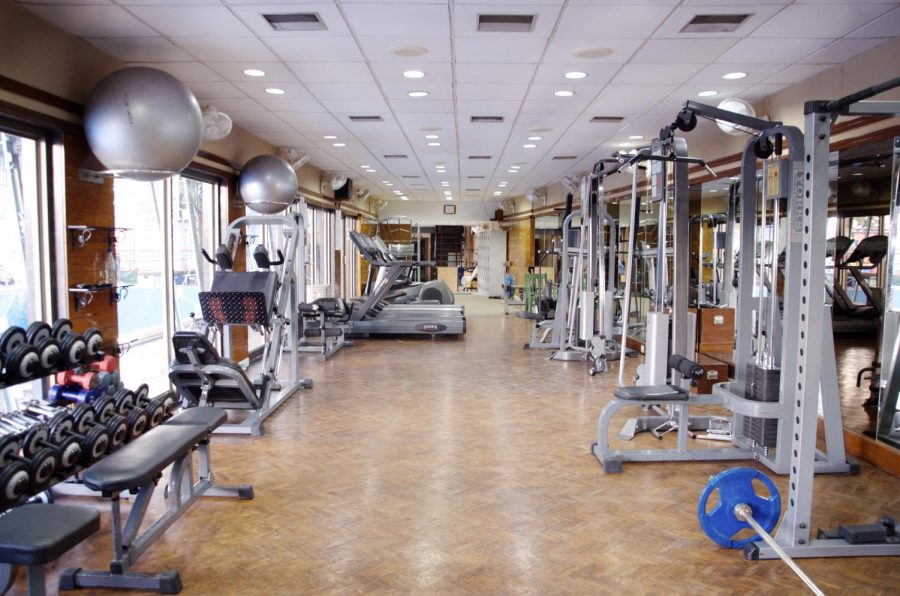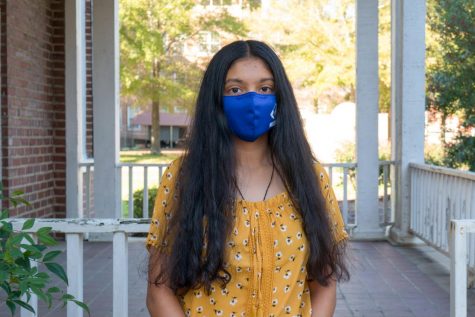Patel and Vanga: The quarantine ‘glow up’ obsession is unhealthy
After gym’s were shut down for an indefinite amount of time, people turned to at-home exercises.
September 30, 2020
At first, when families all over the United States began to quarantine themselves due to the influx of novel coronavirus cases, fitness was the last thing on anyone’s minds. The rise of COVID-19 was instantly coupled with the fall in overall fitness. But as all of us began to quarantine for extended periods of time, the rise of fitness trends like Chloe Ting workout programs began to happen, not to the benefit of everyone.
Fitness is starting to become more widespread in America during this pandemic. More than any other time, virtual workouts were popularized on many social platforms, such as YouTube, Instagram and TikTok. Many influencers advertised their workout videos as “quarantine workouts” and encouraged people to stop being lazy and get fit. The producers of these videos may have had good intentions in mind, but with the rising trend of “fitness glow ups,” many people may have begun to feel insecure about their bodies.
While being fit and important is healthy, these videos are all titled similarly and are specific to parts of the body. Some examples include bubble butt workouts, flat stomach workouts, thigh gap workouts and hip dip workouts. These titles promote somewhat unrealistic body standards for women and imply working out should be done to get a specific type of body.
An article from April 2020, “Quarantine Glow Up Pressure is Real, But Is It Healthy?,” said, “The pressure on women to be constantly working on our appearance is nothing new but this pandemic and subsequent isolation seems to have spawned a particularly pernicious brand of it.”
With a global pandemic and many other factors causing people to spiral into depressive episodes, the last thing women—especially young girls—needed was to be insecure about their bodies.
Being healthy and fit is one thing, but portraying flat stomachs as a visual form of being healthy and encouraging toxic mentalities is another. These videos may have been made to influence a healthier lifestyle, but to many people, women especially, it is an implication that having a healthy body equates to having a slimmer figure.
As teenagers who had plenty of free time, we found ourselves laying down and scrolling through social media and seeing fitness ads and transformations everywhere. Suddenly, we felt we were not doing enough to stay healthy. It almost feels that if we come out of quarantine with anything less than a “perfect body” we’ve wasted our time.
It is absolutely no surprise that body problems and issues with self-beauty have become a problem that’s existed in the American status quo for years on end, but with many individuals becoming unfit during COVID-19 the toll of mental health can specifically affect them the hardest by aiming its hate towards their bodies. The foundation “Eating Disorders Hope” stated their viewpoint on body issues surrounding being unfit and mental health.
“The damage goes beyond just feeling bad about your body. Research has revealed the damaging consequences of this mindset. It has been observed that when individuals experience poor body image, they will often turn to dieting as a solution. A disturbed body image is a significant component of eating disorders and plays an important role in the development and continuation of eating disorders.”
The unfitness plaguing America right now needs to be stopped because the onset of negative body images can seriously harm many people around the nation. Some of those struggling with body issues that resulted from quarantining themselves might be all around you. Body issues and mental illness hit very close to home and our personal communities, whether known or not. The time we live in is already stressful, and people do not need the additional pressure of “glowing up.”











